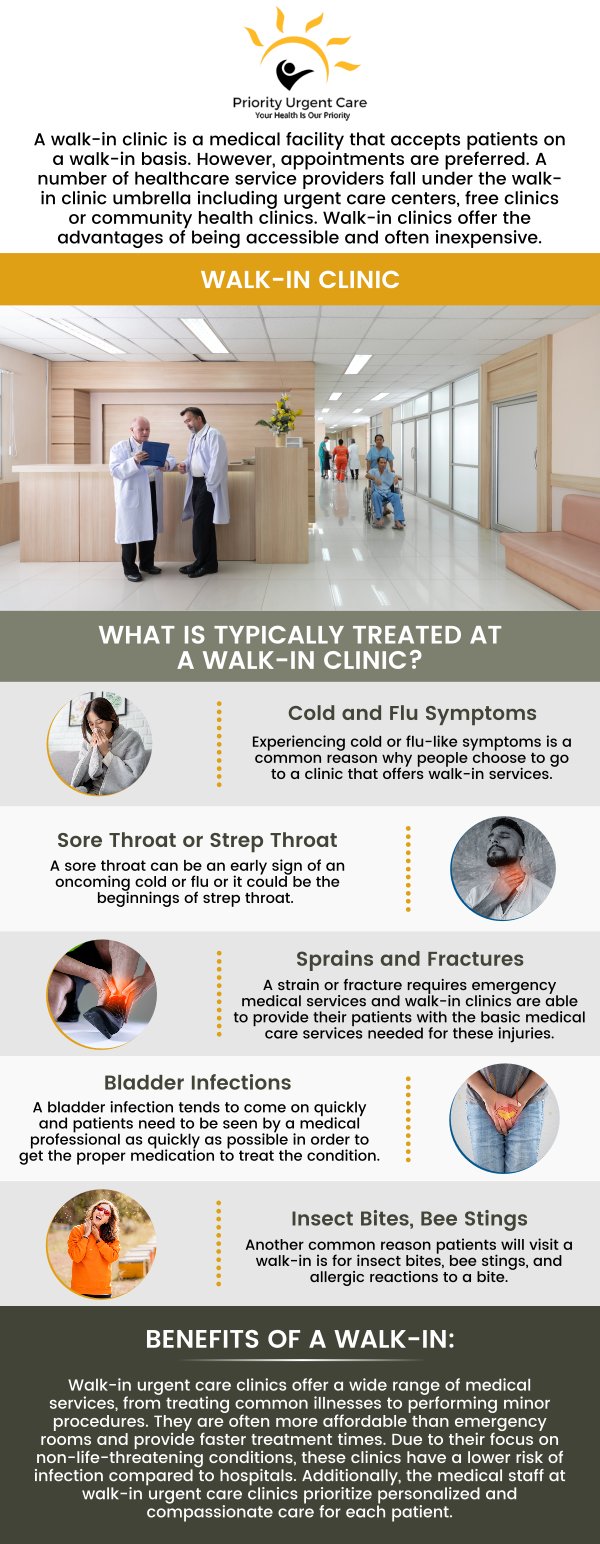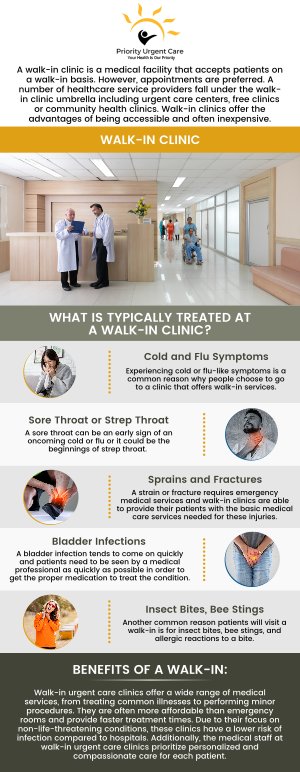Walk-In Urgent Care for Diarrhea Treatment in Connecticut
If you or a loved one is experiencing symptoms of diarrhea, visit Priority Urgent Care and Walk-In Clinic for diarrhea treatment now. For more information, please contact us or request an appointment online. We have convenient locations to serve you in Cromwell CT, East Haven CT, Ellington CT, Newington, CT, Oxford, CT, Unionville CT and Wallingford, CT.


Table of Contents:
Can diarrhea cause dehydration?
What are the signs of dehydration?
What are some causes of diarrhea?
When should you go to the doctor for dehydration or diarrhea?
Two of the most common symptoms of illness are diarrhea and dehydration, which often go hand-in-hand. Because diarrhea causes an excess of fluids to be expelled from the body, in moderate and severe cases it can often lead to dehydration. Treating dehydration is fairly straightforward, however, if it is caused by diarrhea, diarrhea must be treated first.
Yes, diarrhea can cause dehydration. Every time fluid is lost and not replenished, dehydration becomes a greater risk. Diarrhea is no exception: because it involves expelling high amounts of fluids in a short amount of time, diarrhea can affect hydration status and healthy electrolyte levels. By maintaining healthy levels of fluid inside and outside our cells, electrolytes, such as potassium and sodium ions, ensure the smooth running of our bodies.
The signs and symptoms of dehydration include:
For infants or young children:
• Dry mouth and tongue
• No tears when crying
• No wet diapers for three hours
• Sunken eyes, cheeks
• Sunken soft spot on top of the skull
• Listlessness or irritability
For adults:
• Extreme thirst
• Less frequent urination
• Dark-colored urine
• Fatigue
• Dizziness
• Confusion
Diarrhea is caused by a disruption in the normal movement of water and electrolytes in the digestive system which results in loose, watery stools and high volumes of fluid loss. Causes of diarrhea include:
• Bacterial infection in the gut, such as Escherichia coli (E. coli), causes disease in 75,000 people in the US every year
• Viral infections, such as rotavirus or the cold virus, can have a similar effect of disrupting the balance of ions and water in the digestive system, causing diarrhea
• Medical conditions of the gut, such as irritable bowel syndrome (IBS), food intolerance, Celiac disease, and Crohn’s disease
• Spicy food that contains capsaicin (often found in peppers) can irritate the gut and may cause inflammation, which can lead to loose stools and diarrhea
Dehydration and diarrhea often accompany one another. Although they are intrinsically related, they have different warning signs for when one should seek professional care. For diarrhea in children, these include:
• Diarrhea does not improve after 24 hours
• No wet diaper in over three hours
• A fever of more than 102ºF
• Bloody or black stools
• A dry mouth or tongue
• Cries without tears
• Unusually sleepy, drowsy, unresponsive or irritable
• Sunken appearance to abdomen, eyes or cheeks
• Skin does not flatten if pinched & released
For adults, warning symptoms of diarrhea include:
• Lasts more than two days without improvement
Signs of dehydration, including:
• Excessive thirst
• Dry mouth or skin
• Little or no urination
• Severe weakness
• Dizziness or lightheadedness
• Dark-colored urine
• Severe abdominal or rectal pain
• Bloody or black stools
• A fever of more than 102ºF
Go to the doctor for dehydration if:
• Have not urinated in 8 hours
• Feel dizzy upon standing
• Feel very tired or weak
• Are confused
• Feel disoriented
• Cannot drink fluids on your own
Severe dehydration is a medical emergency and must be treated at a hospital emergency room to avoid serious complications such as permanent tissue damage, organ failure, and death.
If you are experiencing symptoms of dehydration or diarrhea, come to Priority Urgent Care and Walk-In Clinic today. Our medical professionals are experienced at treating dehydration and diarrhea and can help you restore your health. Call us today to book an appointment with our dehydration and diarrhea specialist, or visit one of our clinic. We have two Connecticut locations to better serve you: one in Newington and one in Oxford. We serve patients from Cromwell CT, East Haven CT, Ellington CT, Newington, CT, Oxford, CT, Unionville CT, Wallingford, CT, and BEYOND!

Additional Services You May Need
▸ Urgent Care
▸ DOT Physicals
▸ Worker’s Injury Treatment
▸ Drug Testing
▸ Physical Exams
▸ School/Sports Physicals
▸ Sports Injury Treatment
▸ X-Ray Services
▸ Pediatric Urgent Care
▸ Poison Ivy
▸ STD Testing
▸ Immunizations & Vaccinations
▸ Lab Testing
▸ Pre-Employment Physical
▸ Employer Services


